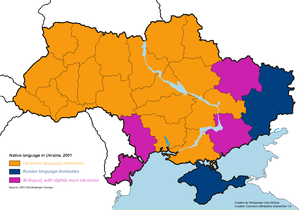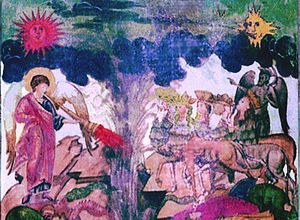Christopher Lewis asked me on Facebook:
I am interesting on understanding your scale for judging an animal’s suffering. How do we know killing one animal is fine, another is wrong. Torturing one animal ok, hunting another to extinction not.
Here’s my answer:
Christopher Lewis It’s an excellent question.
I would formulate my thoughts this way:
- Vulnerability to extinction.
First, we have to protect species against extinction. I believe it is a massive sin to cause any extinction of species, a total blasphemy against the Creator as we cannot create a single species. And also the loss of the genetic material robs future human generations of the opportunity to experience this life form. So I make the same point here for animals, plants, fungi and without regard to size or complexity. We cannot replace them, and don’t destroy what you cannot create is an excellent maxim for life. - Controllability of habitat and numbers
Second, given the first point, we need to take more care with regard to animals or plants where the slide to extinction is less controllable by us. So at the moment marine life has a bigger call on protection because we have certainly placed plastics into the oceans at measurable amounts and this is completely and guaranteedly anthropogenic and there is no debate about it, unlike the debates that can be made in the case of greenhouse gases and global warming. I am in two minds about GW but I am not in two minds at all about the plastic issue, to the degree where I jumped up and down and got everyone in a small chain of stores I do things with to abandon plastic bags entirely. I have been talking about the plastic issue for fifteen years in fact, and finally people are starting to take the issue seriously and hopefully not too late, but we still don’t know how good the clean up can be and how fast. So I put animals in the line of threat from plastics into a degree of priority. - Strength of links to others of the species
It does appear that certain animals, even from their behaviour, have empathy to each other and interact with each other and some have interactions with their offspring which are related to love and tenderness in the human. For animals where the loss of one causes distress to others, I give more consideration than for the ones which do not have such a case. There are many species of bird, for example, that could be domesticated but humans have not chosen for the farmyard those which have lifelong pairbonds and which pine away when their loved one is taken. Take a chicken from the rooster and he happily carries on with his existing harem and the other chickens also don’t tend to look around for the missing hen. Do this to penguins, storks, swans and many other birds and mammals and you have a node of suffering. So I give priority not to eat the animals which show tenderness to one another and which demonstrate meaning to one another. In “The Time Machine”, for example, H.G.Wells Morlocks have taken the trouble to breed out of the Eloi race of humans they are farming any kind of empathy for each other. As indeed the powers that be do to us today, replacing Christ’s call to love our neighbour with the empty husk of political “correctness”. - Intelligence regardless of sociability
Fourthly, the above point doesn’t mean that vertebrates are always preferred over invertebrates. It appears that shrimp which people eat in great numbers are social and that the octopus, which is pretty anti-social really, is a startling intelligence and deserves a bit more respect than your typical invertebrate. All of this is subordinate to the first and second point, anyway. - Deaths per kilogramme of useable protein
This leads on to the fifth and this is an important point. If we are turning a living, sentient animal into amino acids for our own digestion, it seems to me to be more moral to take one animal that will feed many families over many meals than to take an animal which it takes many of to feed one person one meal. This is one of the reasons why I try to avoid shrimps. It takes maybe 10 shrimps to make a meal for one person, whereas a cow might make a hundred meals so the relationship of shrimps to cattle to give you a tonne of protein is at least a thousand (maybe closer to ten thousand) shrimps to one cow. This is an extreme example. Now if we placed the intelligence and value of the life of the shrimp at only one thousandth of that of the cow, maybe that would be justifiable. But if you look at shrimps in an aquarium for any length of time you’ll see probably just as much different activity and expression going on as you’ll see on a cow’s face as it stands around chewing cud, and maybe even more. So for me it’s disturbing to think that we could be making a virtual holocaust of these crustaceans just to produce the kilos of a single slaughtered cow. Likewise when it comes to fish is it not a bit disturbing to take a thousand capelin to give us the equivalent flesh of one tuna? Worth a thought. - Naturally predated
And then we have the sixth issue. Prey animals. Animals are by nature divided into hunter and hunted. The hunted tend to be thise which are naturally in the niche of proviing meat to other species and to a degree they evolved into it. It is part of being a sheep that you get eaten by a tiger, it is part of being a tiger that you don’t get eaten by anything. Human agriculture fit into this natural division in that we usually don’t eat tigers (some do) and usually do eat sheep (some don’t). - Substitutability.
If an animal or plant can be substituted with another in order to give the necessary thing we are looking for (example tortoiseshell now largely replaced by plastics) then it is best to take the version of the product with the least offences against these other points. If there is no substitute then all the more we need to take care that the species is protected from extinction. Usually this involves careful cultivation over a number of different sites. - Farmability
Given the last point, an animal or plant which can actually be farmed is a better candidate for use than a wild species that cannot be kept and cultivated under human control. Those which can be kept ought to be kept in a proper way, with regard to diet, housing and enrichment. The use of battery farms and similar is becoming thankfully a thing of the past, and this trend should continue. We are making a one way trade with these animals, they feed us and give us food and fibres, plants render to us all their nutrients and chemicals and of course it is not a deal any of them signed up to. The least we can do is give them a reasonable time of quality life with as low suffering as possible prior to sacrificing that life, again with the minimum possible suffering. Not all species lend themselves to farming, on the other hand those species which do also seem to lend themselves to adaptation into numerous breeds with varying characteristics. - Multiple products.
It is maybe good in view of the above to use synthetic fur rather than real fur, however if synthetic fur becomes unviable for any reason, it is better to farm fur animals which are also edible, such as rabbits, rather than mink which are only there to provide fur and which by the way require the sacrifice of numerous other animals to nourish them, although they can of course be fed on foods made from spent hens and dairy cows not usually sold for human cuisine. If we are going to sacrifice an animal, we should at least waste as little of it as possible. It is good to keep sheep as they provide milk and wool in addition to the produce of their carcase. Cattle produce leather in addition to their milk and blood products taken during their lives but this, like their meat and unlike wool, is a one off event at their death. - Utilisation of inedible food. Humans cannot eat grass which is the easy crop. Cattle, sheep and camels do eat these as they are cellulose metabolised, thanks to their microbiota hosted in special chambers of their alimentary canal. Pigs can eat acorns and scraps which humans cannot eat. Via these animals, oak forests and grasslands have a use to us which might make the difference between keeping them going with their additional biodiversity, which you wouldn’t find in say a wheatfield. Hence farming them has advantages which vegetarians tend to overlook.
Now let’s apply all the above to the issue of whales. They for sure let themselves down on the size issue – one whale will feed more than one of almost anything else, and given that we cannot eat plankton they let themselves down in the acorn argument too, but on the other arguments we shouldn’t be taking them.





